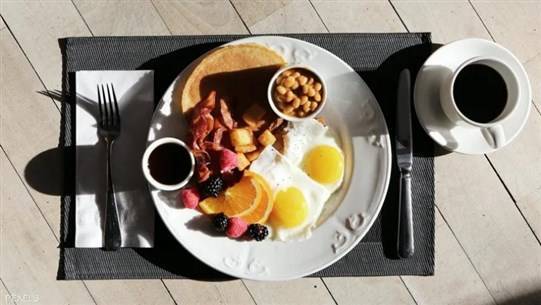Breakfast is the most important meal of the day, as it revitalizes our bodies after hours of fasting during sleep. Therefore, it is crucial to make smart decisions about what we eat in the morning and to avoid foods that can give us a quick energy boost, only to leave us feeling sluggish by lunchtime. Below is a list of the worst 15 types of foods one might consume at breakfast:
**Sugary Cereals**
Avoid cereals that are high in sugar, especially the colorful ones marketed to children. The more dangerous cereals are those marketed as "healthy" while also containing high sugar content. Cereals can be a quick and nutritious option that provides a feeling of fullness in the morning, but only if made from whole grains and without added sugars. Check the nutritional values of your cereal and ensure there are no added sugars. Opt for whole grain cereals rich in fiber that will keep you full and energized until lunchtime.
**White Bread and Margarine**
White bread is made from white flour, which has been processed to remove whole grains, thus also stripping away beneficial vitamins, particularly B vitamins. A better choice is brown bread made from unprocessed or lightly processed whole wheat, enriched with beneficial nutrients. Margarine has been processed to be easily spreadable directly from the fridge, and during this process, trans fats, also known as "partially hydrogenated oils," can be added. There are calls to ban trans fats due to their potential link to health issues, such as blood pressure problems and high blood sugar, according to "Health Natural". Butter, despite its high fat content, is a better option as it is not processed and does not contain trans fats.
**Low-Fat or Fat-Free Yogurt**
Yogurt, whether made from cow's milk or non-dairy alternatives like soy, is generally a healthy choice due to its high protein and probiotic content (the good bacteria that help maintain a healthy gut). Often, "fruit-flavored yogurt" contains more added sugar than full-fat varieties, and even regular or Greek low-fat yogurt sometimes contains added sugars. Low-fat yogurt without added sugars isn't very calorically dense and won't keep you full or energized for long. Therefore, add some fruit of your choice, nuts, or oats to create a healthy and delicious breakfast.
**Processed Meats**
While the taste of bacon and other processed meats can be appealing, this is generally due to the added salts and processing techniques used to appeal to our taste buds. Processed meats are high in saturated fat and calories, and consuming such foods can lead to health issues and weight gain. The high salt content often found in these meats can also leave us feeling thirsty and dehydrated. Processed meats are also associated with digestive issues as we age.
**Bananas**
Bananas are good food; they are filled with fiber that helps maintain a healthy gut and are rich in potassium, vitamin C, and antioxidants that support a healthy immune system. However, bananas are also relatively high in sugar, which can cause spikes and drops in blood sugar levels, leading to cravings for a snack before lunchtime. Sugar is a type of carbohydrate, so eating a banana means consuming a fair amount of carbohydrates with little good fat and practically no protein. Simply having a banana for breakfast won't keep you energized for long, and you'll feel hungry quickly. Try adding bananas to homemade smoothies or slicing them onto whole grain toast. You can also add a bit of your favorite nut butter for a nutritional boost of protein and healthy fats.
**Fruit Juice**
When we eat fruit, such as oranges, we typically consume one or two pieces, but when we drink fruit juice, one glass can contain much more. Oranges are healthy, as are any fruits used to make juices, particularly because they are high in vitamin C and other minerals. However, fruit also contains fructose. When consuming one or two oranges, you don't ingest much fructose, but if you juice four or more oranges in one sitting, you're consuming more sugar than you realize. Juice also removes the fiber content from the fruit since you are not eating the pulp. Fiber is essential for good gut health, so consume whole fruits and keep juices to a minimum. Definitely choose not to drink fruit juices with added sugars.
**Sugary Coffee Drinks**
If you need a cup of coffee (or two) in the morning before you can work or even think, you're not alone, and this is not inherently harmful. However, the way we choose to drink our coffee can impact our health. If we drink large cups of coffee with added full-fat milk and sugar, we are adding a substantial load of calories in the form of fats and sugars. If we consume a cup of this coffee alongside an unhealthy breakfast choice, we are ingesting a large number of calories. If we consume only black coffee for breakfast, not only are we likely calorie deficient and finding it hard to feel energetic, but we are also missing out on beneficial nutrients, fiber, and protein.




